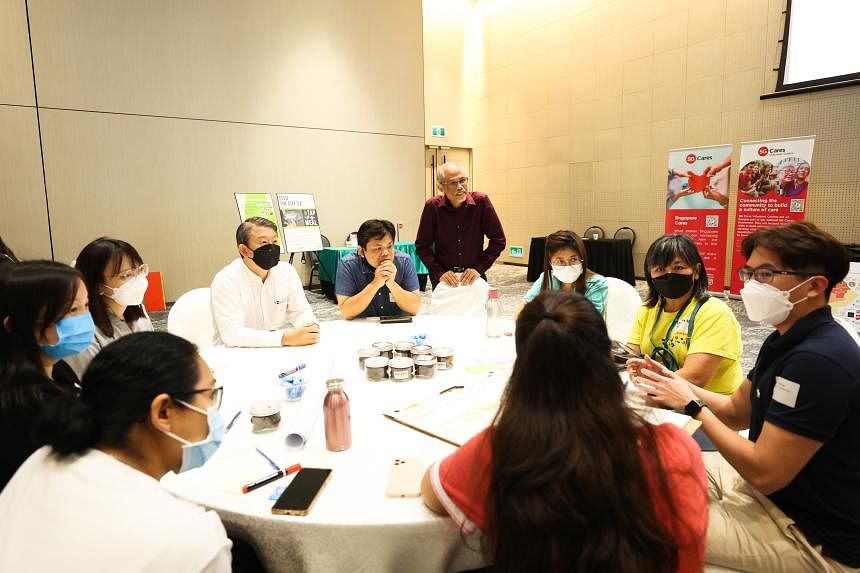SINGAPORE – In her 24 years with the Singapore Children’s Society, the senior director of its Yishun Family Service, Ms Tan Bee Joo, has seen more people stepping up to help low-income families.
But more coordination is needed among agencies such as the social service offices, family service centres, schools and hospitals to help the families, who often face multiple stressors such as financial difficulties, mental health issues and children not going to school, she said.
These agencies should communicate and be clear about their roles to avoid duplication of efforts and to ensure that the families get the right help.
Ms Tan was one of the social workers who took part in an engagement session organised for social sector workers and volunteers as part of the Forward Singapore exercise on Thursday, where participants had group discussions on how to better support low-income families.
Forward Singapore is a nationwide engagement exercise that will culminate in a report in mid-2023.
Said Ms Tan: “It’s good to have many helping hands doing similar things, and we can’t tell each agency what to do and not to do. But what will be helpful is having a few agencies which are known to the family come together to discuss what is best for the family.”
Ms Denise Foo, volunteer manager at the SG Cares Volunteer Centre at Yishun, also attended Thursday’s session. She said she liaises between agencies and sees the help families need, before linking them with the community partners that can provide the support needed.
For instance, for seniors who were unable to buy food for themselves during the Covid-19 pandemic, SG Cares arranged for food donations from companies to be delivered to their homes.
She also gave an example of efforts that are wrongly channelled, noting that some food rescue groups assume rental block residents are of low income, when some of the residents are actually married couples waiting for their Build-To-Order flats.
Ms Tan said more long-term volunteerism is also needed, which schools can encourage in students from a young age by, for instance, partnering homes for the elderly and getting students to visit them multiple times in a year rather than once.
Corporate partners should also listen to the needs of volunteer organisations to find out how they can be of help, rather than simply aiming to hit certain corporate social responsibility targets, she said.
She added that low-income families who get formal help from family service centres often do not have strong support from their own family and friends. Volunteers from the Community Link programme by the Ministry of Social and Family Development fill this need for informal support by befriending the families, she said.
Madam Sarimah Amat, founder of Project Pencil, a ground-up initiative which provides after-school tutoring for disadvantaged students, stressed the importance of getting the support of neighbours.
She said volunteers at the centre in Yishun live in the area, and she has started a group chat with about 90 neighbours where they can share “lobang” (good deals) such as tables they want to give away.
“We should get more people, especially youth, to be involved in our work, to understand our reason for doing this work and to see that the problem is real and that we need to do something about it,” she added.
Ms Foo said her group at the engagement session discussed the importance of skills training for low-income groups to help them become independent and self-reliant. “We can give them fish but it’s also important to teach them to fish,” she said. “When parents can see that they can get out of poverty, then it allows their children to see they can get out of this cycle as well.”


